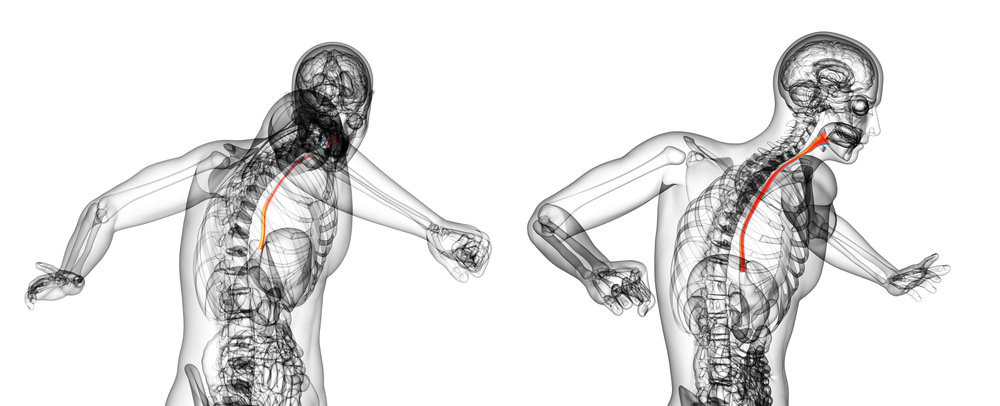Sarcoidosis May Affect Esophagus, Causing Difficulty in Swallowing
Written by |

Sarcoidosis may cause anomalies in the esophagus and subsequently lead to difficulties in swallowing, according to a new case report.
The physicians who conducted the study say involvement of the esophagus in sarcoidosis is “extremely rare” — with only 24 such cases documented to date — but that patients must be promptly diagnosed and treated to avoid further complications.
The study, “Dysphagia Caused by Extrinsic Esophageal Compression From Mediastinal Lymphadenopathy in Patients With Sarcoidosis,” appeared in the journal Clinical Gastroenterology and Hepatology.
Physicians followed a 58-year-old man who was admitted to the gastroenterology department after complaining of worsening swallowing difficulties for the past seven months.
“It was marked by only solid foods ‘getting hung up’ in his chest at a frequency of several times per week without any choking or gagging sensation,” the team wrote.
The patient had gastritis — a bacterial inflammation in the stomach — one year earlier, but had been successfully treated. He also complained that his voice had become hoarse over the past three months, but had reported no chronic heartburn, regurgitation, blood vomiting, cough or weight loss. In fact, his physical exam was normal.
Doctors then examined his esophagus and identified multiple lesions that caused narrowing of the lower esophagus but, according to the report, not to a great extent.
With an endoscopic ultrasound, however, doctors obtained a biopsy of the esophagus, which revealed the presence of enlarged and irregular-shaped lymph nodes that corresponded to the lower esophageal lesions they had seen before. Further analysis of the biopsy helped doctors diagnose the patient with sarcoidosis.
The man started taking prednisone (20 mg/day); he responded well and his symptoms began improving.
“Before treatment, the patient used to experience [swallowing difficulties] for solid foods several times per week,” doctors wrote. “However, after one month of treatment, he did not encounter an episode of similar symptoms even after tapering off steroid therapy. On three-month follow-up, an esophagogram revealed normal swallowing and normal esophagus, demonstrating an unremarkable recovery in our patient.”
The team also wrote that, in similar cases, sarcoidosis may result in perforation of the esophagus. To avoid this risk and limit morbidity and mortality, patients should be immediately diagnosed and treated.





